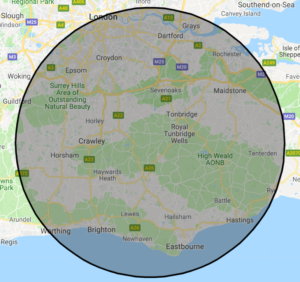If your business is becoming too reliant on you, it may be time to change something
In my previous blog, I offered advice about how to avoid becoming too reliant on one employee, customer or external supplier. I also explained how this preference for neutrality is often known as the Switzerland Structure. Today, I will be exploring another common mistake that a lot of business owners make, and one which hopefully by the end of this blog, you will know how to avoid: allowing your business to become too reliant upon you. This principle also has its own name: ‘Hub and Spoke’, which essentially is a measure of how well your company could thrive without you.
If you think about your business currently, it may be hard to imagine what it would be like without you, and if you and I are truthful with ourselves, perhaps, secretly, we like it this way! For many entrepreneurs, our businesses are like our babies, and it is hard to want to imagine a world where we are not a central part of its existence. Businesses are also like children in the sense that it is somewhat inevitable that, one day, they will grow up and fly the nest! This can include a number of different scenarios, including: selling your business in the future; selling partial shares; taking a more back-seat role in older age; passing the business on to our actual offspring and so-forth. All of these possibilities demonstrate the importance of the Hub and Spoke model: none of these would be possible if your business is too reliant upon you. It is therefore preferable to create a business foundation that places you as an important feature of your business, but not at the centre of its very infrastructure.
How would your business perform if you were out of action for three months and unable to work?
If the prospect of selling your company is completely unimaginable to you, imagine this scenario: you have an accident and are unable to work for three months. It’s something none of us anticipate, but any number of scenarios could bring it about.
My business development tool, Value Builder, puts this very question to you:
‘How would your business perform if you were out of action for 3 months and unable to work’?
- Unsure
- Suffer a lot and not survive
- Suffer a lot but survive
- Suffer a little and survive
- Hardly suffer at all
It does not take a Value Builder expert to work out which of these answers are preferable. If your palms got a little sweaty and your heart began to race a bit at the thought of being out of action for three whole months, then it might be a good time to take a look at how you could perhaps make your business less reliant on you.
What should I do if my company would suffer without me?
For starters, you can take comfort in knowing that you are addressing the issue at hand. You have acknowledged a problem within your business and are going to solve it. Additionally, the worst answer any business owner can give to my question is being unsure as to how your business would survive, because as business owners we should have that information readily at hand.
There is no magic solution for decreasing your businesses dependence upon you, however, there is one measure that can be taken that usually goes a long way: reducing (or even eradicating!) the amount of time you spend being involved with customers directly. This often sounds like a daunting prospect for many owners, especially those with smaller businesses, but it is genuinely the best way to reduce this dependency culture.
The reason most business owners form their respective companies is because they’ve found a gap or opening in the market in an area in which they are specialists. This, in turn, comes – more often than not – with a passion for your given field, making it rewarding to interact directly with customers. And if you’re good at what you do, you probably get positive feedback from them, which makes it even harder to cut out our customer interaction time completely.
As your business grows, however, it is necessary for you to delegate more tasks and take on a more supervisory role. Managed correctly, this will bring about greater profits for your company, which will benefit you directly, as well as making it more attractive to potential buyers in the future.
It’s all relative!
Whilst the generalisation can be made that if your business is less reliant upon you, it makes it more lucrative both now and in the future, I do need to emphasise how relative this is. Certain industries are going to rely more on a founder than others. For example, if you are a furniture design company that has a Point of Difference being that it is designed by the one and only Beverly, then it is hard to escape Beverly’s central role within the business and a degree of customer interaction. However, the focus should be on minimising Beverly’s role within individual projects. For example, Beverly, might design this season’s fabrics and centrepieces and then train her employees to be able to recreate her visions accordingly. But even in this scenario, in the long-term, Beverly should become the spirit of the brand, rather than the hand’s on designer; after all, very few of the eponymous designer fashion houses still have their founder at the helm.
Once again, this relativity highlights why it might be useful to go through a Value Builder report with me, so that I can specially tailor the balance of Hub and Spoke to meet your business’s needs.
My clients benefit from a whole range of supporting materials to help them in all areas of their business*.
If you’d like to know more about the business areas in which I can help you, call 01732 453 464.
Value Builder exclusive offer
Value Builder is an extraordinarily powerful tool to give business owners the insights they need to meet their business and personal goals, so I am personally committed to making it available to entrepreneurs in Kent, Sussex and Surrey, in the area indicated in the map.
Value Builder normally costs business owners £500. However, I am delighted to offer it to selected businesses free of charge – and I am also pleased to offer the follow up 90-minute 121 consultation to go through your results at my expense.
Why? Well, I want businesses to have the very best chance to grow and develop, delivering the results business owners and their families deserve.
Secondly, I want to see businesses thrive and recruit additional team members to further grow the business and help to boost the local economy.
The full list of towns where I can provide this service is below, but if you don’t see your location, give me a call or drop me an email I will let you know if I can help you. If I can’t, I’ll put you in touch with one of my colleagues who helps businesses in your area.
To apply for your FREE Value Builder report and business strategy review
Call 01732 453 464
Or email julianweekes@actioncoach.com
I help business owners in the following towns:
Brighton & Hove |
Hailsham |
Lingfield |
Seaford |
Bromley |
Hastings |
Maidstone |
Sevenoaks |
Cranbrook |
Haywards Heath |
Newhaven |
Sittingbourne |
Crawley |
Heathfield |
Orpington |
Tenterden |
Crowborough |
Hildenborough |
Oxted |
Tonbridge |
Dorking |
Horam |
Paddock Wood |
Tunbridge Wells |
Eastbourne |
Horley |
Redhill |
Uckfield |
East Grinstead |
Horsham |
Robertsbridge |
Wadhurst |
Edenbridge |
Kings Hill |
Rotherfield |
Worthing |
Goudhurst |
Lewes |
Rye |
Don’t see your location in the list? Drop me a line and I’ll let you know if I can help you – or put you in touch with one who my colleagues who works with business owners in your area.
*My clients benefit from supporting material and coaching in the following business areas:
Sales & marketing |
Lead generation |
Sales process |
Business planning |
Time management |
Finance, understanding the numbers |
USP & POD (Unique Selling Point and Points Of Difference) |
Systems |
Team / Team dynamics |
Recruitment / DISC / personality profiling |
Leadership |
Business growth |
Strategies for profit |
Succession planning |
Exit strategies |
Looking for support in one of these key business areas?
Call 01732 453 464
Or email julianweekes@actioncoach.com







